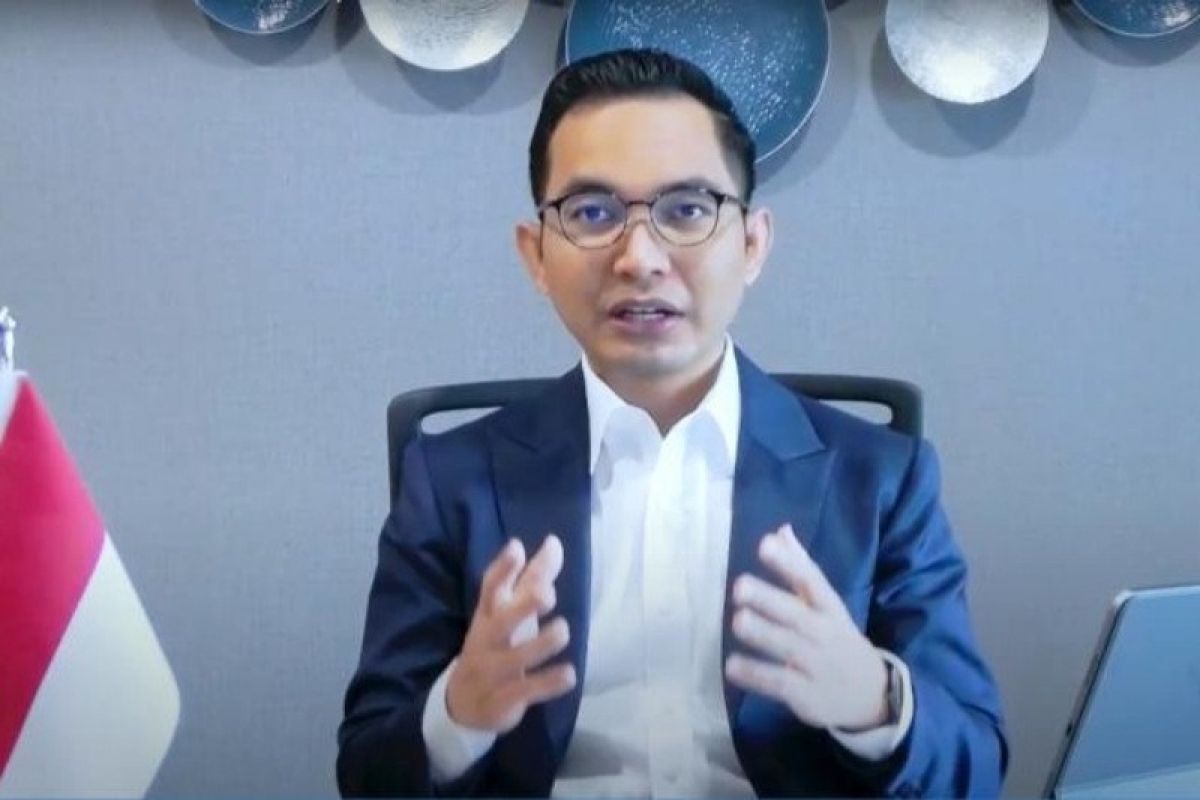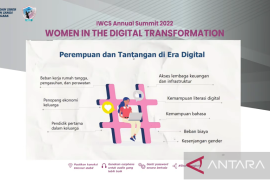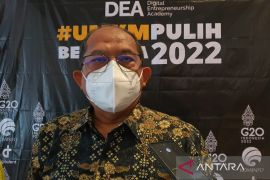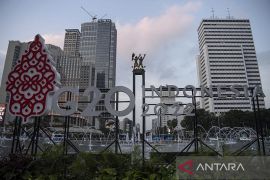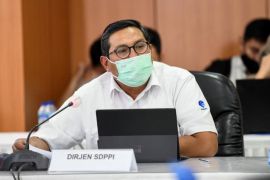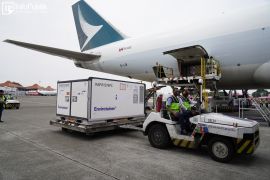"Given the characteristics of the digital space, which is increasingly becoming complex, dynamic, and growing at a rapid pace. It is expected that Indonesia's digital talents will not only excel in terms of technical skills or hard skills, but also become proficient in non-technical skills or soft skills," spokesperson for the Communication and Informatics Ministry Dedy Permadi said in a written statement here on Wednesday.
Based on ‘The Future of Jobs’ report from the World Economic Forum, it can be estimated that by 2025, 43 percent of industry players will reduce the number of workers due to technological advancements.
It is estimated that 85 million obsolete jobs will be lost and 90 million new jobs will become available, thus, signifying the division of labor between humans, machines, and algorithms.
Therefore, the ministry is urging people to equip themselves with the necessary skillsets for the era of digital transformation. The ministry quoted a 2020 study conducted by LinkedIn, which stated that digital skills focus on three things known as ‘ABC.’
ABC is short for artificial intelligence, big data, and cloud computing.
People also need to master non-technical skills in the digital era, which are known as the 4Cs: critical thinking, creativity, collaboration, and communication.
Permadi said that one more non-technical skill that needs to be mastered is the ability to solve complex problems.
The need to master various digital skills is also underlined by the East Ventures Digital Competitiveness Index 2022 survey, which states that 95.8 percent of digital companies in Indonesia see digital skills as an important indicator when selecting workers.
Unfortunately, 56.3 percent of digital companies face difficulty finding workers with such skills, the survey said.
The workforce still only has basic capabilities. A survey by Amazon Web Services and AlphaBeta for the Digital Skills Report 2021 showed that the application of digital skills and literacy in Indonesia is still low.
Only 19 percent of Indonesian workers have basic digital literacy. In addition, only 6 percent apply technical or intermediate digital skills.
According to the AlphaBeta survey of 2020, if Indonesia intensifies programs to improve digital skills, digital talent could contribute as much as Rp4,343 trillion to the national GDP (gross domestic product) by 2030.
Permadi described this as a "fantastic value,” as the nominal is more than double the initial projection of Rp1,900 trillion should there be no skill improvement. It shows a large gap between policies that are backed up with education and training and otherwise.
To address the digital skills gap, the ministry has conducted a comprehensive digital literacy program covering basic to advanced levels.
The improvement of basic level digital skills has been carried out through the National Cyber-Creative Digital Literacy Movement program. Last year, the initiative garnered more than 12.3 million participants nationwide.
At the intermediate level, the ministry is offering a Digital Talent Scholarship program, which provides training in various areas such as artificial intelligence, cyber security, and digital marketing.
Last year, as many as 133 thousand people participated in the program. The ministry is aiming to increase the number of participants every year so that by 2024, 700 thousand people can graduate from the Digital Talent Scholarship program.
As for advanced digital skills, the ministry is targeting policy makers in both the government and private sectors through the Digital Leadership Academy program.
As many as 550 participants can take part in the program this year. The designing of the training curriculum has involved foreign universities such as Oxford University, Tsinghua University, and Imperial College London.
Related news: First G20 DEWG focuses on digital literacy, skills
Related news: People's digital skills need to be improved: Bappenas
Related news: Building a digital ecosystem as the key of future SOEs
Translator: Natisha A, Mecca Yumna
Editor: Sri Haryati
Copyright © ANTARA 2022
